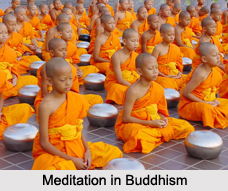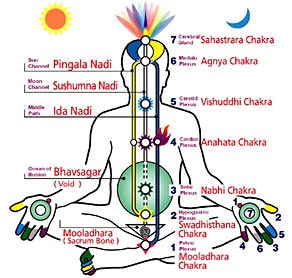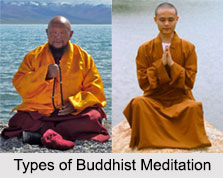 Meditation is believed to improve healing ability and enhance creativity, in addition to awakening the heart and mind and allowing inner growth and submission to God. All religions practice meditation and in different forms. Throughout history, meditation has played a large role in many spiritual and religious practices.
Meditation is believed to improve healing ability and enhance creativity, in addition to awakening the heart and mind and allowing inner growth and submission to God. All religions practice meditation and in different forms. Throughout history, meditation has played a large role in many spiritual and religious practices.
While many religions offer the same essential practices, each religion has its unique orientation; drawing on its own special symbols, stories and teachings; favouring certain practices, subjects and goals.
Meditation in Buddhism
Many mediation techniques commonly practiced today originate from ancient Buddhist meditation texts, which continue to be used by followers of the religion today.
Meditation is important on the pathway to enlightenment and Nirvana in the Buddhism, which are believed to help reach a state of serenity and insight. Several techniques including breathe meditation and recollections are widely taught in Buddhist schools.
Meditation in Hinduism
 There are various styles used in Hindu meditation that are taught in different schools. Yoga is commonly practiced initially to prepare oneself for meditation and self-realization. Moksha is the desired state of Hinduism, which can be thought of as similar to Nirvana of Buddhism, being calm and concentrated.
There are various styles used in Hindu meditation that are taught in different schools. Yoga is commonly practiced initially to prepare oneself for meditation and self-realization. Moksha is the desired state of Hinduism, which can be thought of as similar to Nirvana of Buddhism, being calm and concentrated.
Meditation in Islam
Islamic meditation, or Sufism, focuses on thinking that leads to knowledge and utilized methods of breathing control and the repetition of holy words or mantras. There are several similarities with Buddhist meditation, such as the concentration technique and focused introspection.
Meditation in Baha"i
Meditation and prayer both play a central role in the Baha"i faith to reflect upon the message from God. It is encouraged for followers of the faith to meditate with a prayerful demeanor to turn towards God and focus on the divine power. However, the place of meditation in the religion is flexible as the founder of the religion, Baha"ullah, left the type and purpose of the practice up to the interpretation of the individuals.
Meditation in Jainism
Jain meditation is thought to be the pathway to salvation and attainment of the three jewels: faith, knowledge and conduct. With these jewels, a state of complete freedom is gained. Meditation is central to the spiritual practice of Jainism and is thought to help attain enlightenment and the 24 Tirthankaras exist in meditative postures.
Meditation in Sikhism
Meditation, known as "Simran", is needed to achieve spiritual goals alongside good deeds in Sikhism. The practice is used to feel God"s presence and become one with the divine light. It is believed that there are 10 gateways to the body, 9 of which are physical holes (e.g. nostrils, eyes, ears, mouth, urethra and anus) and the 10th is the "Dasam Duaay", an invisible hole for spiritual uses that is needed for enlightenment.
Meditation in Christianity
Meditation can be used as a form of prayer in the Christian faith, to connect with and reflect upon the word of God. It commonly consists of focusing on a series of thoughts, such as a passage from the Bible, and reflecting on its meaning. It differs from other forms of meditation that originated in the East, as it does not utilize mantras that are repeated to help in the process of enlightenment. Instead, it is believed to deepen the personal relationship with God.



